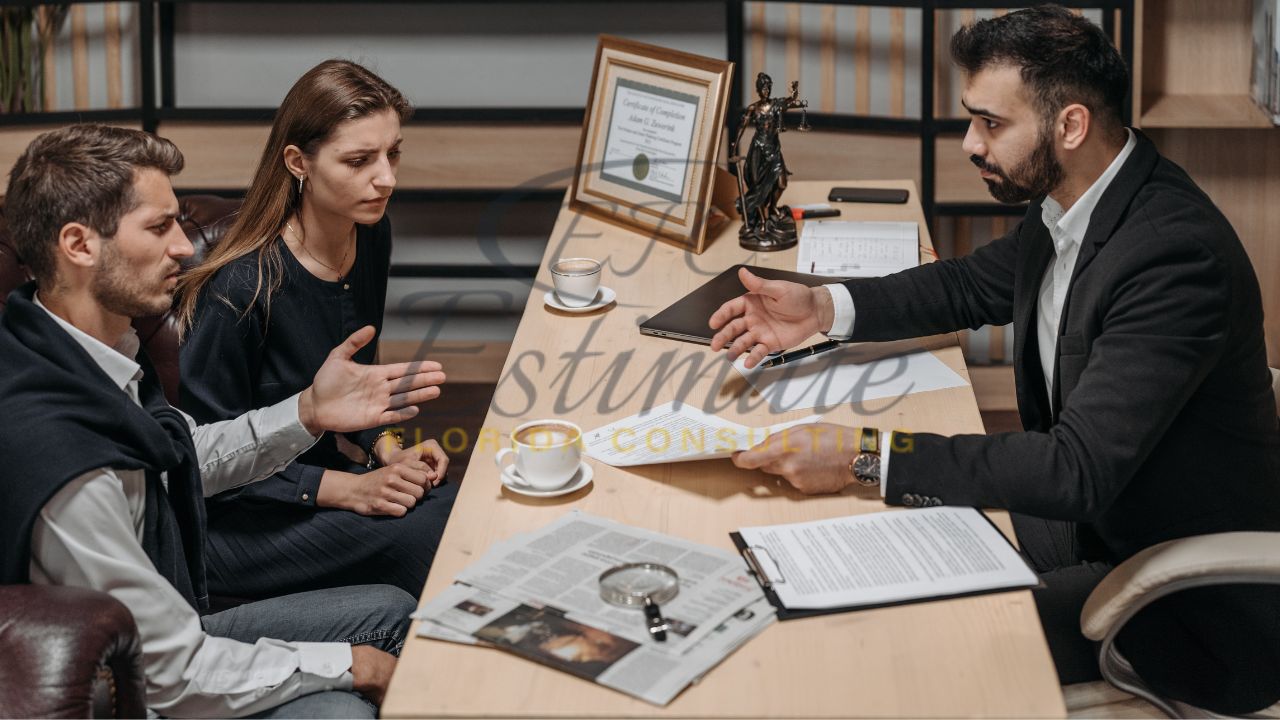Consulting Skills Give Students an Edge
Modern classes often stress facts and formulas, yet one set of abilities rises across every subject: consulting habits. Learning to ask sharp questions, review evidence, and propose clear next steps supports progress in science, language, and daily life. A learner who thinks like a consultant spots patterns sooner, avoids wasteful guesses, and explains ideas so others care. These strengths also match what colleges and future supervisors seek across the expanding education advising space. At the start of any major assignment, students plan, research, and sometimes compare online services like write a papers for me when deadlines feel tight. Even that choice calls for consulting moves that feel practical and calm. Gather data, check quality, and select the best option for the task.

Treating schoolwork as a set of small cases builds confidence and independence over time. Each finished case sharpens judgment and raises real classroom value. The pages below show how these habits work, why they matter, and simple ways teachers can fold them into daily lessons.
Why These Skills Matter in School Today ?
Schools no longer train young people for one fixed job; they prepare them for many shifting roles. Consulting habits sit near the center of this flexible mindset and help across many fields. When a learner frames homework like a client issue, the first step is defining the goal with care. After that, map hurdles and pick tools that fit the task. This approach stops students from jumping straight to answers and pushes them to consider the process itself. Teachers observe that units shaped by a consulting frame raise engagement during class. Everyone acts like an investigator, not a passive listener who waits. Hiring managers agree in many surveys from the advising sector. Graduates who can scope a problem and pitch a clear solution move faster. The habit of structured inquiry links classroom theory with daily practice outside school. Starting early gives students portable thinking tools for tests today and hard meetings tomorrow.
Growing Strong Problem-Solving Habits
Consultants rarely accept the first explanation they hear, and students can mirror this stance to grow stronger problem-solving muscles. A simple three-stage loop works well and stays easy to repeat under stress. Diagnose, generate options, and choose with a steady mind. During the diagnosis stage, learners collect facts and separate symptoms from root causes on paper. They draft a short problem statement that guides time and energy. Next, they brainstorm options without judging ideas too soon or shutting risks down. Sticky notes, mind maps, or digital whiteboards keep ideas visible for the whole group. Last, they weigh each choice against time, cost, and impact before committing. Because the loop repeats, it turns problem-solving into a habit, not a mystery. Studies show that classes using this approach report higher scores and lower stress. When grades reward the quality of process, not only the final result, failure turns into feedback that improves the next try.
Communication That Moves Ideas Into Action
Clear communication turns good ideas into real change that teams can follow. Consultants practice concise speaking, active listening, and visual storytelling to support action. Students can adopt the same habits with coaching and practice during projects. First, they learn to shape a message using a pyramid structure for clarity. Start with the main point, then list key reasons in a clean order. This habit respects attention spans and keeps group work on track during busy weeks. Active listening follows with steady focus and care. By paraphrasing what a peer said, a learner checks understanding and builds trust. Simple visuals help as well when time feels short. Charts, sketches, or slide icons let audiences grasp patterns at a glance. Teachers who grade talks with rubrics that reward these elements see improvement quickly. In college interviews and part-time jobs, clear communicators stand out at once.
Teamwork and Leadership That Build Results
Consulting projects seldom belong to one person; they rely on teams that blend varied strengths. When students mirror this setup, they strengthen both collaboration and leadership skills that support long-term efforts. Teachers can assign rotating roles—project manager, analyst, presenter—so each learner guides and follows with respect. Clear deliverables and timelines model the structure used by professional consulting firms. Conflict appears in many groups during tight sprints or unclear tasks. Instead of stepping in to solve every dispute, instructors can teach a simple mediation script. Use feelings, facts, and the future to talk through the issue without blame. The method prompts calm talk and fair agreements about next steps. Over time, classmates learn to trust peer feedback and share wins. Group work designed with these supports raises social skills and grades. Later, students join clubs or companies ready to balance authority with empathy.
Research Skills and Data Sense
Good consultants trust data, not guesses, and students should do the same during daily work. Research begins with setting a focused question that guides what to collect. After that, hunt for reliable sources such as journals, government reports, and firsthand surveys. Librarians and online databases make the search quicker and cleaner. Learners still need smart filters to keep noise out of the set. Who wrote the piece, when it appeared, and why it was produced all matter. After gathering facts, the next step is analysis and translation into plain advice. Simple tools like spreadsheets can organize numbers for quick checks. Color-coded charts reveal patterns and outliers quickly for the team. Teachers can use a short template labeled three insights and one recommendation. That format forces students to turn raw data into guidance that leaders can use. The exercise strengthens media literacy and sharpens judgment about claims.
Understanding the Education Consulting Field
The education advising market keeps growing as schools and families seek custom guidance that lifts results. Knowing how this space functions helps students see practical paths for their abilities. The sector includes firms that advise districts on curriculum and assessment design. Startups build learning apps and pilot programs with partner schools and teachers. Independent counselors guide college applications and aid plans for teens and parents. Most groups follow a simple cycle across many projects. They define the problem, propose evidence-based answers, and measure results against clear goals. Students can review case studies to see how classroom skills transfer to paid work. They also learn ethical lessons that protect trust in every plan. Guard student privacy, avoid conflicts, and serve learning needs over profit. Guest speakers from local firms can share daily tasks and tools. Field visits or virtual tours let learners peek into dashboards and meetings.

Helping Schools Offer Advising Services
Many schools already act as informal consultants when they share helpful practices at conferences. With more structure, they can turn that generous habit into formal advising services for partners. The first move is to map internal strengths with care and detail. A math department may have mastered project-based learning across many grades. A counseling office may have reduced absenteeism by half through clear routines. Next, leaders draft a simple service menu with plain options for clients. List the expertise, the format, and the expected outcomes in one place. Workshops, webinars, and site visits cover most delivery needs across the year. Fees can stay modest or be traded for reciprocal training with partner schools. Student involvement adds energy and builds real skills that last. Learners can collect data, craft materials, and co-lead sessions with staff. Clear impact reports keep the program honest and help win grants.
Running a Personal Education Consultation
Not every learner has access to outside mentors, yet progress can still move forward. A self-guided education consultation can run on a simple cycle at home. The process starts with a personal audit that feels frank and kind. The student lists strengths, weak spots, interests, and near-term goals on one page. Next comes data gathering from daily life during two steady weeks. Use grades, teacher comments, time logs, and mood journals to find patterns. With facts in hand, frame one central challenge in clear terms and limits. Raise a science grade without dropping an art hobby or family time. Brainstorm options using idea maps or short freewriting sessions for a range. Weigh choices using time, cost, and enjoyment to guide effort. Write a short action plan and set a review date on a calendar. Share the plan with a friend for gentle accountability that sticks.
Turning These Habits Into Career Advantages
Developing consulting skills does more than raise grades; it opens doors to many careers. Employers in technology, healthcare, finance, and nonprofit spaces prize clear thinkers who act. They want people who define problems, analyze evidence, and present solutions that teams can use. A student who can outline a case study during an internship interview stands out. Many peers only recite course titles and miss real stories that show value. Badges in data analysis or public speaking can prove concrete consulting strengths. Volunteer projects help by offering an impact that can be measured and shared. Plan a charity event or tutor younger students to gain project experience. Networking matters as well for steady growth and feedback. Join a school business club or an online forum to meet mentors. Keep a digital portfolio that records challenges, methods, and outcomes across time. When graduation arrives, carry knowledge and a proven toolkit for solving problems anywhere.

